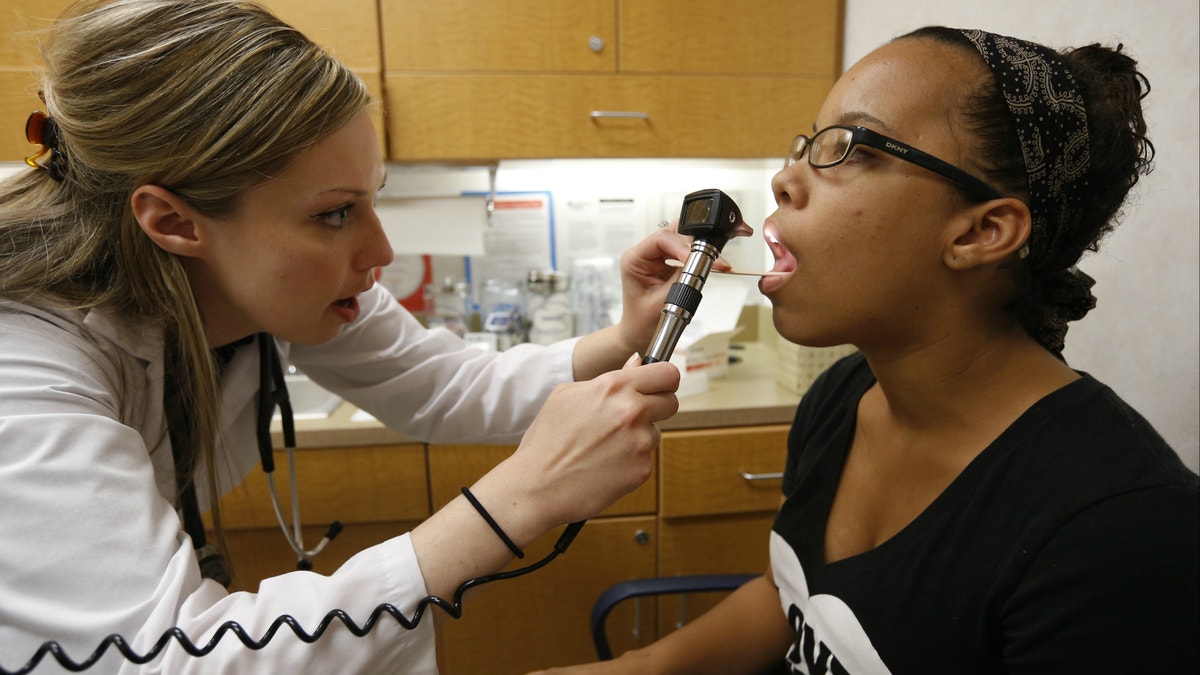
Marissa Farris (R) is examined by nurse practitioner Tamara Hauserman-Aggacid in a Minute Clinic in a CVS pharmacy in Chicago, Illinois. (REUTERS/Jim Young)
Retail health clinics that are popping up in drugstores and other outlets shouldn't be used for children's primary-care needs, the American Academy of Pediatrics said, arguing that such facilities don't provide the continuity of care that pediatricians do.
While retail clinics may be more convenient and less costly, the AAP said they are detrimental to the concept of a "medical home," where patients have a personal physician who knows them well and coordinates all their care.
"We want to do all we can to support the concept of 'medical home' for kids," said James Laughlin, lead author of the statement, published in the journal Pediatrics Monday.
Set in drugstores, supermarkets and big-box stores, retail health clinics are playing a bigger role in the delivery of health care. Some have expanded beyond treating sore throats and giving flu shots to offer sports and school physicals and treat chronic diseases, setting up more direct competition with doctors.
Retail clinics also are generally open seven days a week, don't require an appointment, accept more types of insurance than doctors do and charge 30 percent to 40 percent less for similar services, studies show. Costs vary widely by region and service offered, but getting a common ailment treated at a retail clinic, without insurance, typically runs between $50 and $75.
After plateauing in recent years, the numbers of these outlets are once again expanding, as retailers bet that the Affordable Care Act will bring longer waits at doctors' offices and drive more patients their way.
CVS Caremark Corp, the largest player, wants to double its MinuteClinic locations in CVS stores to 1,500 by 2017. Walgreen Co. plans to add 100 more clinics this year, bringing its total to 500. Consulting firm Accenture estimates the total number could grow to 2,800 by next year from about 1,400 in 2012.
The Convenient Care Association, the national trade group, said retail clinics are responding to consumer demand. "They are a more convenient option for parents with sick children than the alternative, which is often waiting for an appointment or spending hours in a high-cost emergency room for a minor pediatric complaint," Tine Hansen-Turton, the group's executive director, said in a statement.








































